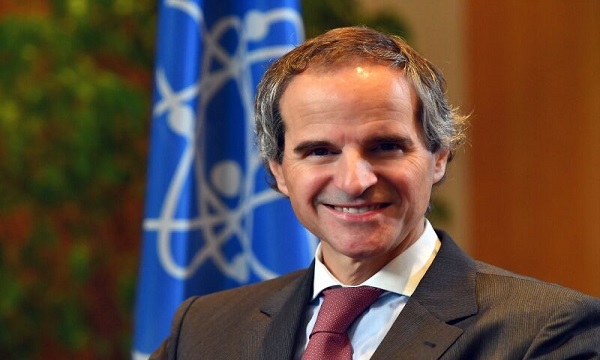Probe on Iran’s nuclear activities may go on for years
 According to Bloomberg, Rafael Grossi IAEA Chief The director general of the International Atomic Energy Agency (IAEA), without mentioning its agreements with Tehran and US violation of UNSCR 2231 in 2018 and Europe's inaction in this regard, said that investigation into Iran’s nuclear activities could take for years.
According to Bloomberg, Rafael Grossi IAEA Chief The director general of the International Atomic Energy Agency (IAEA), without mentioning its agreements with Tehran and US violation of UNSCR 2231 in 2018 and Europe's inaction in this regard, said that investigation into Iran’s nuclear activities could take for years.
International Atomic Energy Agency Director General Rafael Mariano Grossi said that even if Tehran manages to clarify the source of man-made uranium particles detected last year at several undeclared locations, the work of his inspections team won’t be finished.
“These next few months are going to be complex,” Grossi said. “They need to see eye-to-eye at a higher political level.”
Meanwhile, the International Atomic Energy Agency (IAEA) announced on Monday March 7 that IAEA confirmed that Iran had begun injecting UF6 into its third cascade, which includes 174 IR-2m centrifuges. A fourth centrifuge cascade was installed, but no natural UF6 has been injected yet; The installation of the fifth cascade of IR-2m centrifuges is underway and the installation of sixth cascade of IR-2m centrifuges has not yet begun.
Back in December 2020, Iranian legislators passed a law to further accelerate the development of the nuclear program. The law is a firm reaction to Washington’s 2018 withdrawal from the Iran nuclear deal – the Joint Comprehensive Plan of Action (JCPOA) – and the illegal sanctions the US has imposed against Iran since then.
To implement the law, Iran stopped the voluntary implementation of the Additional Protocol to the nuclear Non-Proliferation Treaty (NPT) and restricted access to the country's nuclear sites on February 23.
Following the decision, Rafael Grossi, the director-general of the International Atomic Energy Agency paid an official day-long visit to Tehran and held talks with Ali Akbar Salehi, the head of the Atomic Energy Organization of Iran (AEOI) and Foreign Minister Mohammad Javad Zarif on issues relating to the IAEA's monitoring of Iran’s nuclear energy program.
Iran and the IAEA then issued a joint statement according to which, the two sides have reached a “temporary bilateral technical understanding.”
